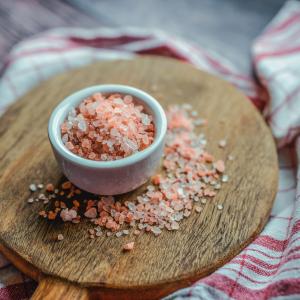More Magnesium Could Mean Less Anxiety
Our bodies cannot function without the mineral magnesium, and that includes the proper working of neurons and neurotransmitters in the brain.
Research indicates that magnesium is required for our nervous system to relax from the effects of fear and anxiety.
Magnesium also supports the brain mechanisms that control and store memories. Having enough magnesium available in our bodies helps prevent cognitive deterioration and enhances brain plasticity, our ability to adapt and generate new cells.
Anyone who has an anxiety-related disorder would be wise to get an adequate intake of magnesium. It may help some individuals manage anxiety without prescription medications, and others who are on medication may require less. Plus, more than 300 biochemical reactions in our bodies rely on the presence of magnesium, some of them essential to cardiovascular health.
Our Pliable Brain on Magnesium
We know that chronic anxiety and fear can create habitual brain responses that interfere with a person’s enjoyment of life and his or her willingness to take on new experiences or risk challenges.
Researchers at the University of Texas at Austin discovered:
Increasing magnesium in the brain can help undo habitual neuronal patterns (brain-wiring) that develop from chronic fear and anxiety. The magnesium allows for more synaptic plasticity (flexibility) so that fear patterns can be changed.
Having elevated magnesium increases the body’s manufacture of brain-derived neurotrophic factor (BDNF), a compound the brain uses to rejuvenate at the cellular level.
Magnesium is used by the body to make a compound called ATP which supplies our cells, including brain cells, with energy to perform their cellular duties. It is possible that having low energy in the brain makes us susceptible to degenerative brain diseases such as dementia and Alzheimer’s.
Getting Nutty About Magnesium
Although many people take a magnesium supplement, about 300 to 500 mg daily, to make sure they have enough of this mineral, it is not difficult to get plenty of magnesium through the food we eat.
One of the most delicious ways to magnesium-up is keeping a supply of nuts on hand for snacking. Almonds, cashews, pine nuts, Brazil nuts, pecans, and filberts are all good sources of magnesium plus other nutrient goodies. Seeds such as sesame, pumpkin, and sunflower are good sources of magnesium as well.
Photo: Wikimedia Commons






